 The Real
The Real 
BILLY THE KID
Recovering the U.S. Hispanic Literary Heritage
Board of Editorial Advisors
Ramn Luis Acevedo
Universidad de Puerto Rico
Edna Acosta-Beln
University at Albany, SUNY
Jos F. Aranda, Jr.
Rice University
Antonia Castaeda
St. Marys University
Rodolfo J. Cortina
University of Houston
Jos B. Fernndez
University of Central Florida
Juan Flores
Hunter College of CUNY
Erlinda Gonzales-Berry
Oregon State University
Laura Gutirrez-Witt
University of Texas at Austin
Mara Herrera-Sobek
University of California at Santa Barbara
Luis Leal
University of California at Santa Barbara
Clara Lomas
The Colorado College
Francisco A. Lomel
University of California at Santa Barbara
Agnes Lugo-Ortiz
Dartmouth College
Genaro Padilla
University of California at Berkeley
Raymund Paredes
University of California at Los Angeles
Nlida Prez
Hunter College of CUNY
Gerald Poyo
St. Marys University
Antonio Saborit
Instituto Nacional
de Antropologa e Historia
Rosaura Snchez
University of California at San Diego
Virginia Snchez Korrol
Brooklyn College of CUNY
Charles Tatum
University of Arizona
Silvio Torres-Saillant
CUNY Dominican Studies Institute
Roberto Trujillo
Stanford University

The Real

BILLY THE KID
With New Light on the Lincoln County War
Miguel Antonio Otero, Jr.
Introduction by John-Michael Rivera
This volume is made possible through grants from the Rockefeller Foundation, the National Endowment for the Arts (a federal agency), the Andrew W. Mellon Foundation, and the Meadows Foundation.
Recovering the past, creating the future
Arte Pblico Press
University of Houston
Houston, Texas 77204-2090
Cover design by Mark Pion
Otero, Miguel Antonio.
The real Billy the Kid / by Miguel Antonio Otero, Jr.
p. cm. (Recovering the U.S. Hispanic literary heritage)
ISBN 1-55885-234-4 (trade paper : alk. paper)
1. Billy, the Kid. 2. OutlawsSouthwest, NewBiography. 3. Southwest, NewHistory1848- 4. Lincoln County (N.M.)History. I. Title. II. Series: Recovering the U.S. Hispanic Literary Heritage Project publication.
F786.B54084 1998
364.1'552'092dc21 | 98-3220
CIP |
 The paper used in this publication meets the requirements of the American National Standard for Information SciencesPermanence of Paper for Printed Library Materials, ANSI Z39.48-1984.
The paper used in this publication meets the requirements of the American National Standard for Information SciencesPermanence of Paper for Printed Library Materials, ANSI Z39.48-1984.
Introduction 1998 by John-Michael Rivera
Printed in the United States of America
8 9 0 1 2 3 4 5 6 7 10 9 8 7 6 5 4 3 2 1
Contents
by John-Michael Rivera
Illustrations
Introduction
T hat the first Hispanic territorial governor of New Mexico, Miguel Antonio Otero, would write a biography of the legendary gunfighter Billy the Kid is in itself peculiar. For that same work to begin with an epigraph of a romantic poem by Robert Cameron Rogers continues to problematize the creation of such a literary work. The poem stands alone, without any reference or footnote of authorial intent as to its placement in this historical Southwestern biography of the notorious desperado. And yet, the romantic poem implicitly voices and thereby represents the authors own political life as New Mexicos first Hispanic territorial governor (18971907). Like to a Ship, then, is a carefully positioned literary device to characterize Oteros own political life for the reader: a life that was conditioned by the neocolonial winds that madly mingle, and therefore he found himself having to trim [his] sails to favor all during the transition period when the New Mexico territory was pursuing statehood.
Similar to the implicit representation of the poetic epigraph, this historical biography of Billy the Kid continues to use both implicit and explicit literary tropes and motifs. These literary devices structure this biography into a history that redefines the image of Billy the Kid and the history of the territorial war in Lincoln County. Moreover, what The Real Billy the Kid displays throughout is an emplotted history that recounts and subversively questions U.S. colonialism as it swept through New Mexico after the Treaty of Guadalupe Hidalgo of 1848. Much as the poem begins to reveal, Oteros recreation of the life and history of Billy the Kid not only reexamines and exposes the colonial past of New Mexico, it also deflates and undermines the dominant Anglo-American Western narratives about Billy the Kid that helped shape the popular imagination of America as being only Anglo-American in culture and history.
Emplotting the Past
For centuries Americans have represented the frontier romantically. From the early nineteenth to the late twentieth century, the Wild West has been mythologized in literary works, critical histories and cinematic representations, which, in turn, have shaped Americas historical consciousness about this period. Of the various bandits, renegades and outlaws of this period, Billy the Kid has been one of the most mythologized. More than eight hundred literary and cinematic representations of his life have been told and re-told (Tatum 5). Each of these fictional and historical representations presents a different history and a different life, all contributing to the creation of an American legend and myth. And yet, despite the hundreds of literary works, one voice, the Nuevomexicano voice, has been unheard. This is particularly problematic for historians who have tried to argue an objective history about this period, since the area where Billy the Kid lived most of his life was largely Nuevomexicano and American Indian in population and history. By not acknowledging the Nuevomexicano past in Billys life, as well as the territorial war in Lincoln County, Euroamerican historians themselves have contributed to the hegemonic Americanization of the history of the Southwestern frontier.
One of the first Nuevomexicano literary voices (publishing in the English language) to come out of the Southwest was that of Miguel Antonio Otero, Jr. His first work was a nostalgic autobiography, My Life on the Frontier, 18641882 (1935). He did not finish the other two volumes (My Life on the Frontier, 18821897; My Nine Years as Governor of the Territory of New Mexico, 18971906) of his autobiographical trilogy until 1940. Between publication of the first and second volumes of his trilogy, Otero became the first Nuevomexicano to write an English-language biography, The Real Billy the Kid, With New Light on the Lincoln County War
Next page

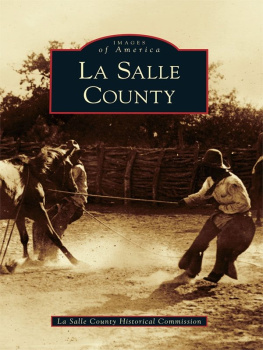
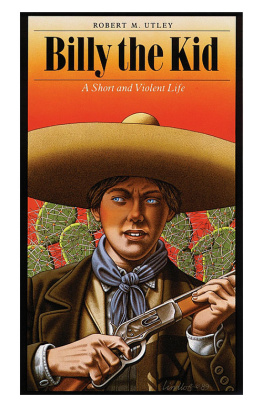
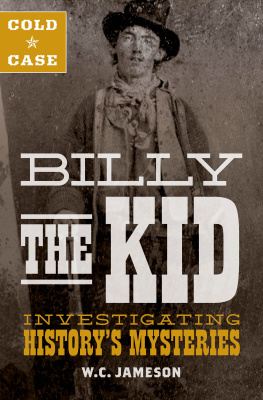
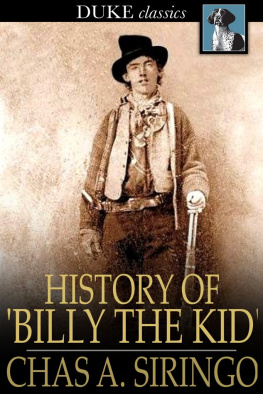
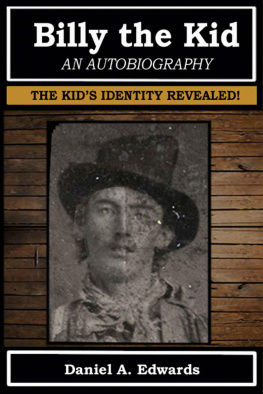
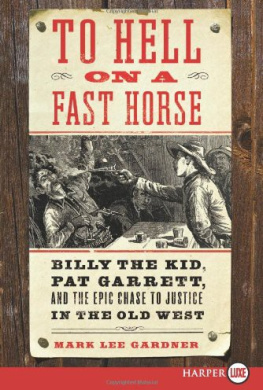
 The Real
The Real 

 The paper used in this publication meets the requirements of the American National Standard for Information SciencesPermanence of Paper for Printed Library Materials, ANSI Z39.48-1984.
The paper used in this publication meets the requirements of the American National Standard for Information SciencesPermanence of Paper for Printed Library Materials, ANSI Z39.48-1984.